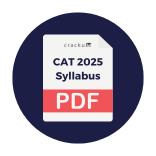Read the following passage and answer the THREE questions that follow.
If we imagine the action of a vaccine not just in terms of how it affects a single body, but also in terms of how it affects the collective body of a community, it is fair to think of vaccination as a kind of banking of immunity. Contributions to this bank are donations to those who cannot or will not be protected by their own immunity. This is the principle of herd immunity, and it is through herd immunity that mass vaccination becomes far more effective than individual vaccination.
Any given vaccine can fail to produce immunity in an individual, and some vaccines, like the influenza vaccine, are less effective than others. But when enough people are vaccinated with even a relatively ineffective vaccine, viruses have trouble moving from host to host and cease to spread, sparing both the unvaccinated and those in whom vaccination has not produced immunity. This is why the chances of contracting measles can be higher for a vaccinated person living in a largely unvaccinated community than they are for an unvaccinated person living in a largely vaccinated community.
The unvaccinated person is protected by the bodies around her, bodies through which disease is not circulating. But a vaccinated person surrounded by bodies that host disease is left vulnerable to vaccine failure or fading immunity. We are protected not so much by our own skin, but by what is beyond it. The boundaries between our bodies begin to dissolve here. Donations of blood and organs move between us, exiting one body and entering another, and so too with immunity, which is a common trust as much as it is a private account. Those of us who draw on collective immunity owe our health to our neighbors.
The term "banking of immunity" refers to the idea that there is something we could rely upon, this immunity and sort of storing this into the system of society as a whole
Option A is not what the author is saying. The idea of herd immunity is not that people will get a reserve of immunity but that the virus will spread less.
Option B: This, too, is incorrect, as the passage does not state that when somebody is vaccinated, it is a "deposit of protection against a particular disease".
Option C: The idea of multiple vaccines preventing multiple diseases is also not in the passage.
Option D: This is the closest to what the author means by the banking of immunity, that although someone who themselves might not be immune, would benefit from the increased immunity of others and could rely on them to some extent.
Option E: This is a bit extreme of what is presented in D, the idea of herd immunity is not presented as a way to mitigate but likely to prevent or reduce the chances of a disease getting hold.
Therefore, Option D is the correct answer.
Create a FREE account and get:
- All Quant Formulas and shortcuts PDF
- 15 XAT previous papers with solutions PDF
- XAT Trial Classes for FREE




